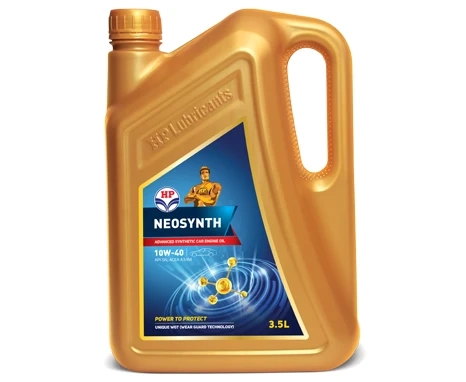Engine oil is the lifeblood of any internal combustion engine, ensuring smooth performance, reduced friction, and longer engine life. Among the various types of oils available, 10w40 engine oil is a popular choice for many vehicles due to its balanced viscosity, strong thermal stability, and wide operating temperature range.
In this article, we will explore what 10w40 engine oil means, how it works, its benefits, when to use it, and how to choose the right one for your engine.
What Does 10w40 Engine Oil Mean?
The term 10w40 refers to the oil’s viscosity grade, as determined by the Society of Automotive Engineers (SAE). Viscosity describes the oil’s resistance to flow, which varies based on temperature.
- The “10w” represents the oil’s viscosity at cold temperatures (the "w" stands for winter). Lower numbers indicate thinner oil, which flows better in cold conditions.
- The “40” represents the oil’s viscosity at high operating temperatures. Higher numbers indicate thicker oil, which provides better protection in heat.
This means that 10w40 engine oil performs well in both cold startups and high-temperature engine environments, making it a versatile option for moderate to warm climates and for engines that operate under stress.
Key Benefits of 10w40 Engine Oil
1. Reliable Cold Start Protection
10w40 engine oil is thin enough at low temperatures to circulate quickly during cold starts. This ensures essential engine parts are lubricated immediately, minimizing friction and wear.
2. High-Temperature Stability
When the engine reaches high temperatures, 10w40 remains thick enough to protect vital components from metal-to-metal contact. It resists thinning and breakdown under stress, ideal for hot climates or long-distance driving.
3. Enhanced Engine Protection
This oil grade offers a strong protective film between moving parts, reducing engine wear over time. It's ideal for older engines, heavy-load applications, or vehicles with higher mileage.
4. Versatile Application
10w40 engine oil can be used in a variety of engines, including motorcycles, cars, light trucks, and even some diesel engines. It works well in both synthetic and semi-synthetic forms.
5. Improved Oil Life
Compared to lower viscosity oils, 10w40 typically lasts longer and handles breakdown more effectively, especially in engines prone to higher operational heat.
When Should You Use 10w40 Engine Oil?
10w40 engine oil is ideal for:
- Older engines: Thicker oil like 10w40 helps seal worn engine parts and reduces oil burning in high-mileage engines.
- Warm climates: It maintains viscosity in high temperatures, offering better protection than thinner oils.
- Heavy-duty applications: If your vehicle is often used for towing, hauling, or long commutes, 10w40 can handle the extra stress.
- Motorcycles: Many bikes recommend 10w40 engine oil due to their high-revving engines and shared transmission lubrication system.
However, always check your vehicle's manual to confirm the recommended oil viscosity.
Types of 10w40 Engine Oil
There are three primary types of 10w40 oil:
1. Mineral Oil
Basic and affordable, but with a shorter lifespan. Suitable for older or less demanding engines.
2. Semi-Synthetic Oil
Blended for better performance and protection than mineral oil, while still being cost-effective.
3. Fully Synthetic Oil
Engineered for maximum performance, protection, and longer drain intervals. Ideal for high-performance and modern engines.
Comparing 10w40 With Other Oil Grades
- 10w40 vs 5w30: 10w40 is thicker and offers better high-temperature protection, while 5w30 flows more easily in cold weather and boosts fuel efficiency.
- 10w40 vs 15w40: 10w40 has better cold start performance, making it more versatile across various temperatures.
- 10w40 vs 10w30: Both offer similar cold start protection, but 10w40 provides better high-temperature protection.
How Often Should You Change 10w40 Engine Oil?
Oil change intervals depend on oil type and vehicle usage:
- Mineral 10w40: Every 3,000 to 5,000 kilometers
- Semi-synthetic 10w40: Every 6,000 to 8,000 kilometers
- Fully synthetic 10w40: Every 10,000 to 12,000 kilometers
Regular oil checks and timely changes are essential for optimal performance and engine longevity.
How to Choose the Right 10w40 Engine Oil
Here are some quick tips to choose the best oil for your engine:
- Refer to Your Owner’s Manual: Always follow the manufacturer's recommended viscosity and type.
- Consider Your Driving Conditions: Choose fully synthetic oil if you drive long distances, carry heavy loads, or live in hotter regions.
- Match Oil With Engine Age: Older engines may benefit from thicker oil to compensate for wear and tear.
- Look for Certifications: Choose oils that meet industry standards such as API SN, SP, or ACEA ratings.
Final Thoughts
10w40 engine oil is a reliable, high-performing lubricant suitable for a wide range of vehicles and driving conditions. Its balanced viscosity makes it perfect for engines that need both good cold start lubrication and strong high-temperature protection.
Whether you own a motorcycle, a mid-size car, or a light-duty truck, using the right 10w40 engine oil can improve engine life, boost performance, and reduce maintenance costs. Just make sure to follow your vehicle manufacturer’s recommendations and choose a quality brand to get the most out of every oil change.


